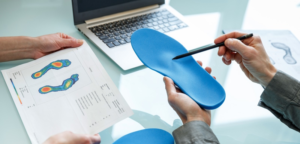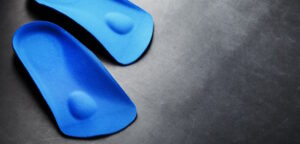Find Advanced Prosthetics in Kansas City at Cotton Orthotic and Prosthetic Associates
Winter is on the way in Kansas City. We have the holidays coming up, plenty more Chiefs football, and our signature brand of ice and snow to look forward to. As Midwesterners, we pride ourselves on enduring freezing temps and our ability to handle dicey roads during our daily commutes.
We can tough out the cold weather, but what about someone who wears a prosthetic device?
Extremely low temps affect vehicle performance, cause wood to contract, and trigger various physiological responses in the human body. Cold weather can also impact the functionality of certain tools and mechanisms that use hinges, joints, and electricity, including prosthetic devices and solutions.
The Effects of Cold Weather on Prosthetic Devices
Cold temperatures that are at or below freezing with precipitation thrown into the mix can cause the following:
Reduced Flexibility
Cold weather can make prosthetic components less flexible, especially those with moving parts. A prosthetic leg with a knee joint, for example, may lose some of its functionality. Prosthetic hands with articulation may lose their dexterity.
Decreased Battery Life
For those with powered prosthetic devices, batteries will drain more quickly in the cold. This can lead to increased frequency in recharging or the need for battery replacement.
Tightened Fit
Cold weather can cause your residual limb to swell in size due to the narrowing of blood vessels (vasoconstriction) as the body conserves heat. If you are out in the cold for an extended period, this may result in a tighter fit for the prosthetic socket. However, once indoors, your residual limb’s swelling should go down.
Risk of Damage
The cables and connectors in body-powered prosthetics may become more brittle in the cold, putting it at risk for damage or breakage. Additionally, some prosthetic devices feature delicate technology that isn’t water-resistant or moisture-proof. Be careful about exposing your prosthetic to snow and ice.
Tips for Using Prosthetic Devices in Cold Weather
Prosthetic devices can be used in cold weather by applying some simple best practices. When dealing with winter weather, be sure to:
Stay Warm
Wearing the right winter attire will keep you warm, which should help mitigate residual limb swelling. Keep your residual limb and the prosthetic socket covered and insulated to maintain flexibility.
Battery Management
Always have a back-up plan. If your prosthetic device is battery-powered, keep spare batteries on hand, as cold weather can reduce battery life. Store these batteries in a warm place, such as an inside pocket.
Regular Maintenance
Cold weather places additional stress on prosthetic components. Ensure your prosthetic device is in optimal working condition by scheduling regular maintenance appointments with your prosthetist.
Be Mindful of Moisture
Cold weather brings plenty of snow and rain. Unfortunately, there will be times you have to deal with it. If you don’t have a prosthetic device that’s moisture-resistant, be sure to do your due diligence to keep it dry. A prosthetic arm and hand, for example, can be insulated in a jacket and glove.
Proper Storage
When not in use, store your prosthetic device in a cool, but not freezing, environment. Extreme cold can affect materials and components over time.
Communication
Maintain open communication with your prosthetist, as they are likely well-versed in dealing with cold weather-related challenges. Discuss any issues you’re experiencing when your prosthetic device is exposed to winter weather. They will work with you to find a solution.
Consult with a Leader in Advanced Prosthetics in Kansas City
While cold weather can present challenges for amputees who use prosthetic devices, proactive measures can help mitigate potential issues. Staying warm, managing batteries, and regular maintenance are essential practices. By taking care and addressing cold-related concerns, you can continue to rely on your prosthetic device with confidence, even in the harshest winter conditions.
For those who are just beginning their journey into orthotics and prosthetics, you probably have a lot of questions about which solution is right for you, how much it will cost, and if your insurance will cover the expense.
The best first step is to contact Dan Cotton of Cotton Orthotic and Prosthetic Associates for your initial consultation and prosthetic exam. With over 25 years of experience, Dan Cotton has worked with a variety of patients from all walks of life and varying healthcare challenges.
During your first appointment, Dan Cotton will collect some medical background information, get to know more about you and your goals, and provide some recommendations for prosthetic devices that will help you reclaim your mobility and functionality. He will even walk you through how everything works with your insurance provider.
Schedule your appointment with Cotton Orthotic and Prosthetic Associates today using the contact form on our website or call us at (913) 338-2672. Our clinic is open Monday through Friday, by appointment only.







